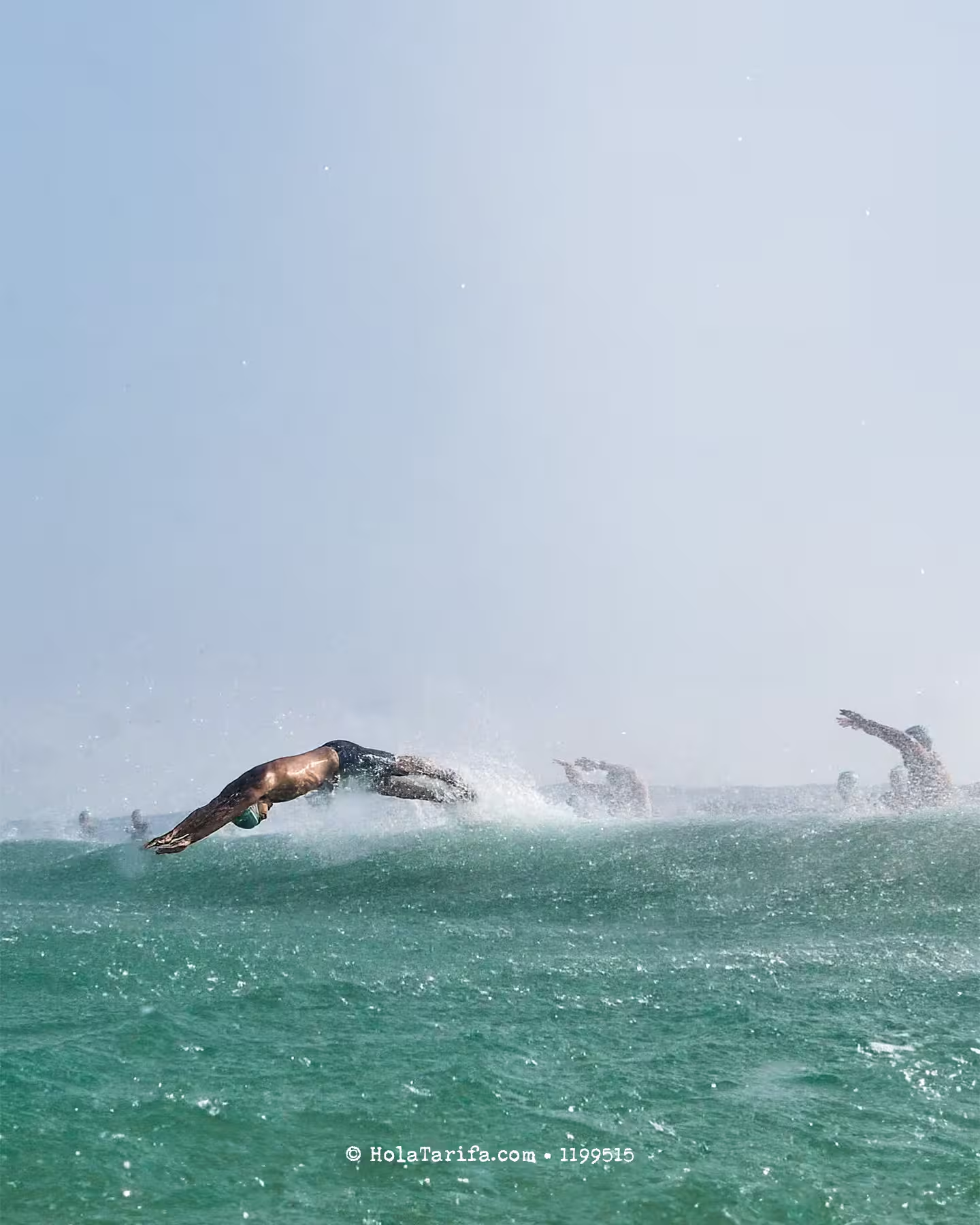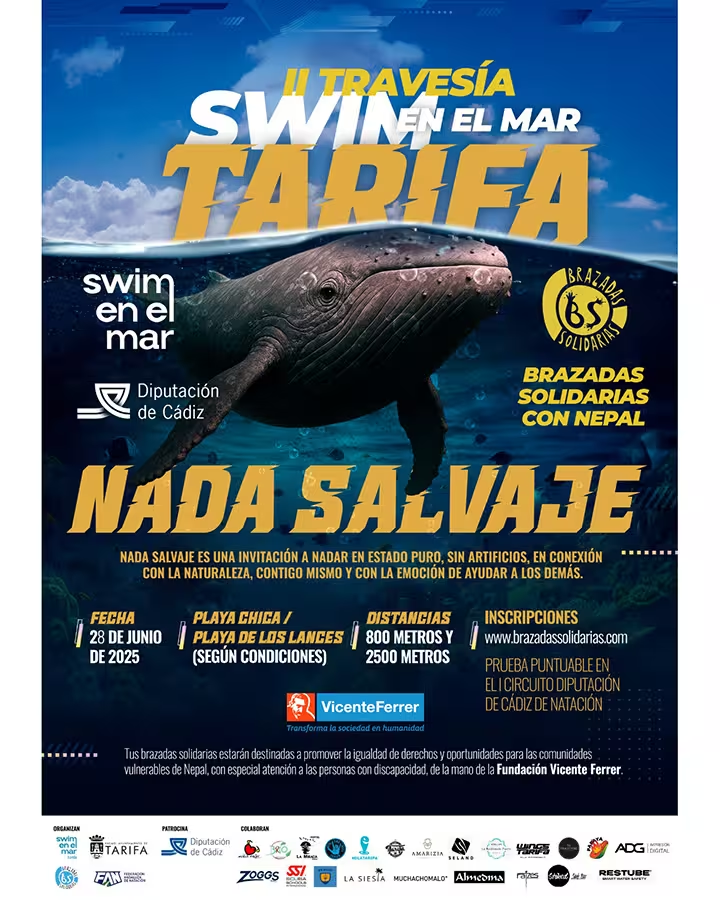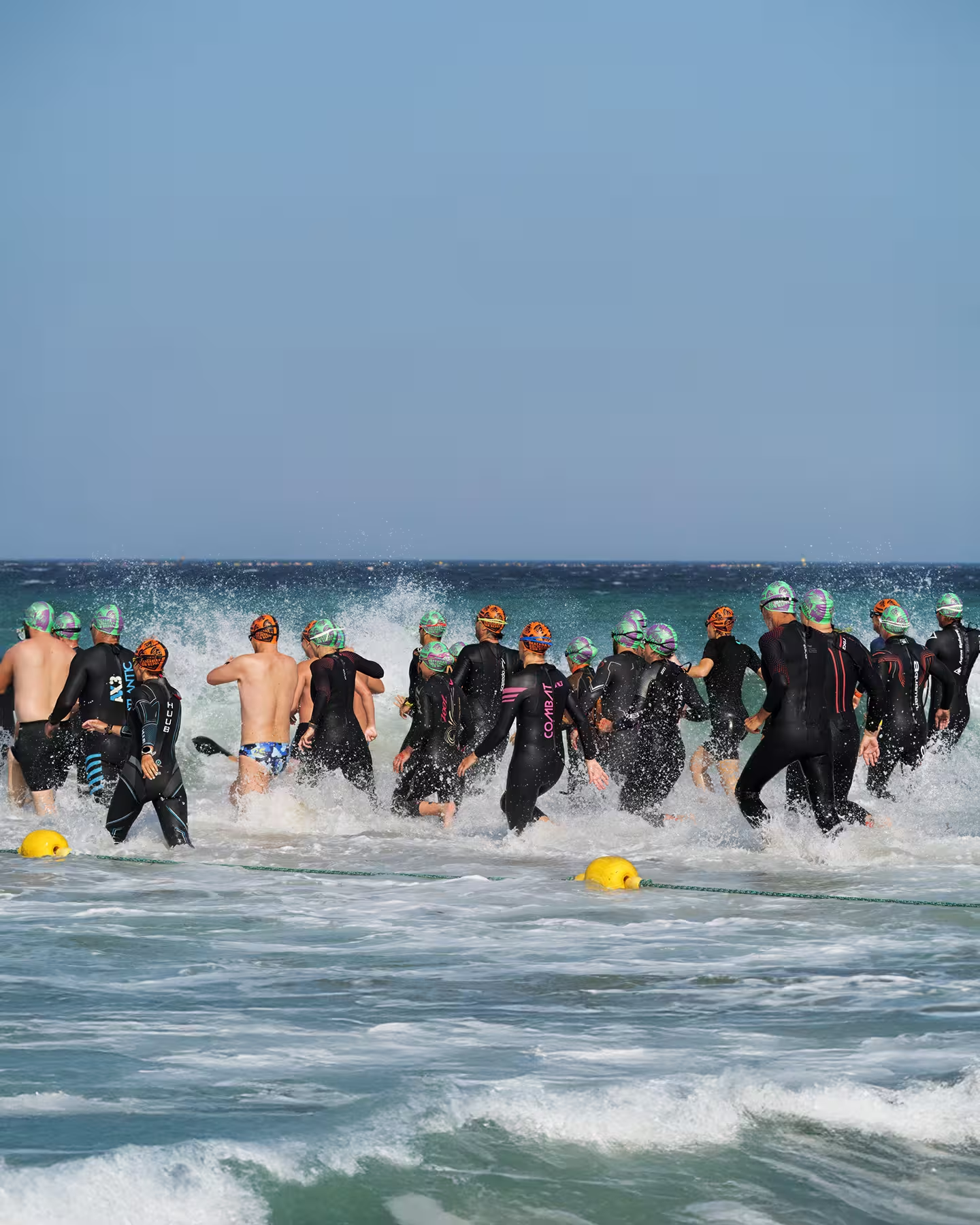

After the success of the first edition, the Solidarity Open Water Swim Tarifa 2025 returns and will take place on 28 June along the coast of Tarifa. Depending on wind conditions, the swim will be held either at Playa Chica (as in the previous year) or at Playa de Los Lances, with two available distances: 800 metres and 2,500 metres.
Organised by SWIM en el Mar, Brazadas Solidarias and the Andalusian Swimming Federation (FAN), with the support of Tarifa Town Hall and the sponsorship of the Provincial Council of Cádiz, this event is part of the 1st Cádiz Provincial Swimming Circuit.
Swim for a good cause! Your participation will help support a project of the Vicente Ferrer Foundation aimed at ensuring access to education for vulnerable children in Nepal, at risk of social exclusion.



The Vicente Ferrer Foundation's Solidarity Project in Nepal
The Vicente Ferrer Foundation, which has been working in India for over 40 years, has launched the first phase of its international expansion in Nepal, a country whose population is still recovering from the devastating 2015 earthquake.
In times of crisis, children are often the first and most affected victims. That’s why the Foundation focuses its support on three vulnerable groups:
It is estimated that there are around 750 brick kilns in Nepal (though unofficial numbers suggest over 1,000, as many operate illegally). The industry has boomed thanks to construction demands and exports to wealthier countries with stricter environmental regulations. Most of the labour force consists of impoverished families, especially from lower castes or Dalits, working seasonally between November and May, during the dry season.
According to data from the International Labour Organization (ILO), 16% of the workforce in these kilns are minors, which equates to 20,000 to 30,000 children who should be in school but are instead being exploited, carrying heavy loads and inhaling toxic smoke from chimney stacks.
The Vicente Ferrer Foundation supports seven preschools in Nepal (for children aged 3 to 6) whose parents work in the kilns. These centres provide nutrition, clothing, and care while the parents work. Without this support, many of these children would be working alongside them.
The project also includes:
Nepal has a high prevalence of mental health disorders, but limited resources for treatment. Many of these conditions are linked to the frequent earthquakes and natural disasters, which often wipe out the few possessions of poor families. Additionally, Nepal endured a violent civil war between 1996 and 2006, the effects of which are still felt today. Many adults who were children during that time continue to suffer from physical and psychological trauma.